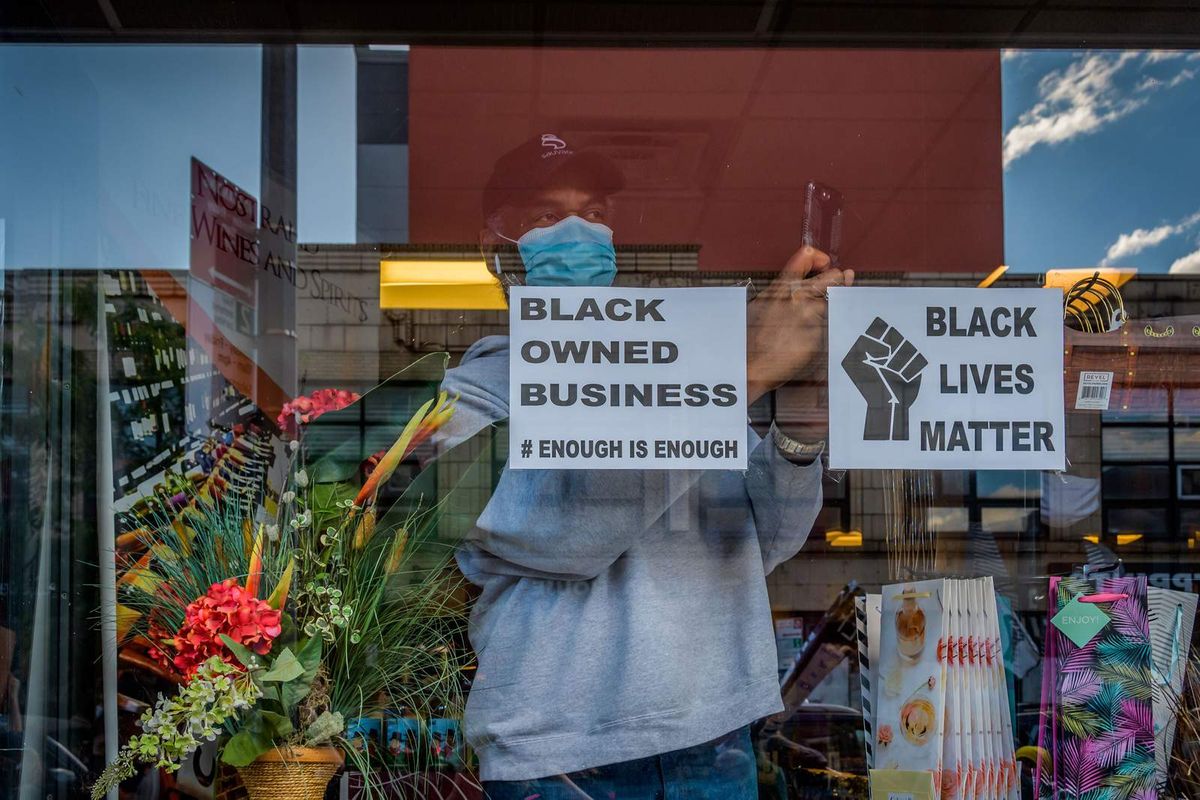Black business owners share their perspectives on change in today’s America

A few minutes every morning is all you need.
Stay up to date on the world's Headlines and Human Stories. It's fun, it's factual, it's fluff-free.
Amid the latest reckoning on race and racism in America, The Millennial Source reached out for perspectives from black business owners and employees regarding their circumstances, hopes and fears.
The responses were as varied as their positions and backgrounds.
Before delving into their insights, a little context. According to data released by the Census Bureau in 2015, between 2007 and 2012 the number of black-owned businesses in America increased by 34.5%, from 1.9 million to 2.6 million.
More recent numbers from private firms noted further gains. Data released in 2018 showed that African American businesses grew more than 400% from the previous year and that 38% of black businesses overall were owned by women – a number notably higher than the number of female-owned businesses among other demographics, which totaled just 23%.
Despite the progress, other markers suggest continued disadvantages. Investments in black-owned businesses continue to lag and deep-seated wealth gaps plague many minority families, making it harder for potential entrepreneurs to find the capital necessary to start businesses.
In 2016, the typical middle class black household had just over US$13,000 in wealth, which represents the total value of their possessions and savings. For the average white family, the average was just under $150,000, reflecting a disparity on par with gaps that existed in 1968.
Hope but uncertainty
For Danasia Redd-Burrell, the CEO of Reddily Beauty, the recent focus on racial disparities in the public conversation has her feeling hopeful, but also wary that any changes can be maintained over the longer term.
“I think a lot of businesses in the public eye, if they previously lacked diversity, are trying to become more inclusive. There have also been a few opportunities that my business qualifies for, because I am a black woman, based on the discussion of race in the past few weeks,” she told The Millennial Source.
“On the other hand, my only concern would be if this newfound voice and spotlight that we have as black business owners and employees will last. Hopefully things will change for the better for minorities, and have a lasting impact.”
Others, like Danasia Fantastic, the founder of several businesses, including TheUrbanRealist, agree with this sentiment.
“As a Black female entrepreneur living in Atlanta, it’s exciting to see brands who truly are looking to become better allies to African American businesses. I feel hopeful that this will lead to true change.”
“That said, I fear that this might just be a trend for brands to make an attempt to get on the right side of history instead of truly wanting to amplify, listen and empower Black professionals and entrepreneurs,” she added.
Persistence of structural problems
For Rahkim Sabree, an author, public speaker and co-founder of the nonprofit An Extended Hand Inc., structural inequalities are so deep that only fundamental change can create lasting opportunity for African American communities.
“I do not feel more hopeful amid America’s ‘reckoning’ on race and racism simply because the structure of racism (on an institutional level) needs to be dismantled before progress is made,” Sabree told The Millennial Source.
“I think the gestures many organizations are making to acknowledge race are a good conversation starter, however there is much more work that needs to be done. If the toxic culture is not addressed, you will have many ‘dog and pony’ shows that discuss promoting equity and inclusion layered on top of a mindset and culture that is anything but.”
Sabree also mentioned that black businesses should take advantage of the moment to do what they can to promote change and progress.
“Now is a time fertile for growth, expansion, and recognition. Surely we cannot dismantle a system in a day or a week or month even, but we can take advantage of the heightened focus to grow our businesses, striking the iron while it’s hot!”
A time for change
Others, meanwhile, are more hopeful.
Janae Trimble, a representative with Lamik Beauty, a black-owned cosmetics company, argued that the national conversations around race not only creates opportunities for minority businesses, but can also foster healing across racial and class lines.
“I am actually very hopeful for the prospects of Black owned businesses, especially in this climate. This isn’t a new reckoning, however, it is just becoming more apparent to all communities,” Trimble said.
“People of all races and ethnicities are starting to look for solutions across the board, anything they can do to help [with] economic parity.”
Trimble went on to say that there is a renewed focus on supporting local businesses and feeding wealth and opportunity back to those who need it most.
“Supporting large corporations has been such a norm, but the word is starting to circulate that everything we have been getting from them can be found in the Black community. By doing these things, you aren’t just helping put money in someone’s pocket, but doing a large gesture for the community.”
Have a tip or story? Get in touch with our reporters at tips@themilsource.com




Comments ()